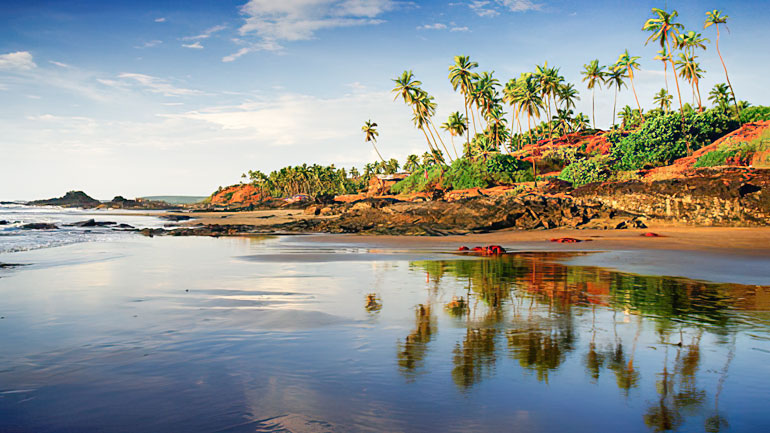
Objective
To increase nature-based tourism impact and bolster solutions that protect natural assets through knowledge generation, capacity building and global outreach.
Overview
Tourism is the largest source of funding for protected areas in many countries. In Africa, wildlife-based tourism generates over US$29 billion annually and employs 3.6 million people in the region. However, travel restrictions and national lockdowns to stop the spread of COVID-19 greatly impacted the tourism industry and exposed how deeply connected nature-based tourism is to the success of conservation, community engagement and poverty reduction. If action is not taken to recover the nature-based tourism sector, natural areas around the world will be lost to other land uses or illegal activities, ecosystem services will diminish, wildlife poaching will surge, and extreme poverty will increase.
PROGREEN is expanding and deepening work on measuring the economic impact of protected area tourism to local economies by helping countries estimate the economic value and contribution of natural assets—such as protected areas—to the local economy. The Flagship will also identify areas where linkages across the tourism value chain (agriculture, infrastructure, fisheries) and local community benefit sharing mechanisms can be strengthened to improve the nature-based tourism resilience. Improved outcomes in nature-based tourism will have a domino effect throughout the tourism supply chain impacting rural livelihoods, local economies and promoting nature conservation.
A pilot methodology is being standardized and shared with partners, clients and World Bank teams, who will also receive implementation training to help integrate the economic value of protected areas into policymaking, so that the economic value of protected areas can be better integrated into policymaking. The work will also assess and develop simplified valuation methodologies that can be used in data- and cost-constrained environments.
Expected Outcomes
To inform country policy and institutional frameworks to promote nature-based tourism as a lever of development and biodiversity conservation. The activity will also contribute to capacity building in client countries to manage and promote sustainable and inclusive nature-based tourism.
Concept and Approach
- Build on work that the World Bank and partners have initiated in areas such as tourism satellite accounts and local economy wide impact evaluations.
- Build capacity in countries to conduct assessments as part of their national development plans, national biodiversity action plans and protected area plans.
- Draft policy and guidance notes on related themes — such as protected area management, agriculture, fisheries, skills development, concessions, and rural enterprises — to identify areas that can help reduce poverty and increase benefits for the local and national economy.
- Conduct consultations and stakeholder meetings on how countries can make investments to support recovery, this includes policy briefs on public works programs that restore habitats, improve rural infrastructure, and create green jobs while maintaining ecological integrity.
- Pilot the approach in select countries to assess the impact of Nature Based Tourism and reinforce the client’s capacity to manage tourism recovery as part of the whole government approach.
- Organize a global event to showcase the case studies and findings
- Generate estimates on the impacts of Nature Based Tourism on jobs, incomes, and multiplier effects on local and regional economies
Progress and Expected Results
To date, the Flagship has provided several technical inputs both on a local and global level, including: supporting the nature-based tourism chapter in the Malawi Country Climate and Development Report, publishing three country reports on the economic impact of protected area tourism on local communities (Brazil, Nepal, and Zambia), which argued that public investments in protected area systems can produce both economic and conservation benefits; increasing internal World Bank collaboration on nature-based tourism projects; and developing a rapid version of Local Economy Wide Impact Evaluation methodology (LEWIE-lite) to estimate the economic impact of protected area tourism on local communities. Planned outputs include:
- A comprehensive assessment/tool that can be used in countries where tourism is a large contributor to GDP.
- Present the methodology and initial results in different global events scheduled for 2021
- Training workshop to build capacity in countries that will adopt the methodology
- Thematic policy and guidance notes on strengthening value chain sectors and improving local benefits to conservation and development.
- Global and country-specific reports providing up-to-date statistics on Nature Based Tourism jobs, income, and revenues for targeted countries and recommendations to increase public sector finance for conservation.
Audience & Beneficiaries
Global and country-specific reports will be disseminated at internal and external events, and advisory services will be targeted to internal World Bank teams to make the case for nature-based tourism as an economic recovery strategy and mechanism to complement existing protected area financing mechanisms. This work will also support Ministries of Environment and Tourism in making the case to Ministries of Finance to invest in natural assets.
Links:
Report: Assessing the Economic Impact of Tourism in Protected Areas on Local Economies in Zambia
Report: Economic Impacts of Protected Area Tourism on Local Communities in Nepal
Feature Story: Harnessing Tourism to Enhance the Value of Biodiversity and Promote Conservation in Nepal
Feature Story: Protecting biodiversity to improve economic outcomes in Zambia